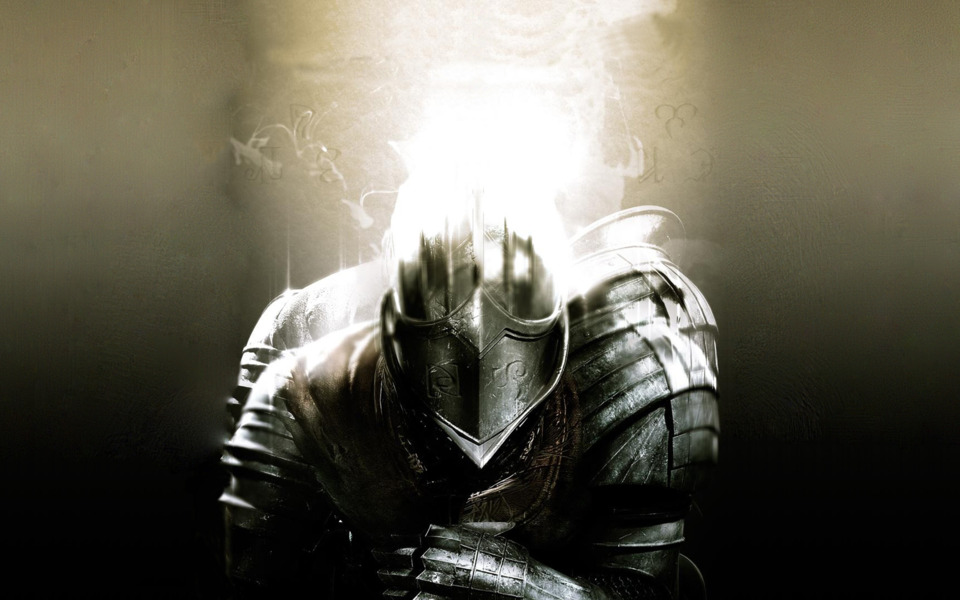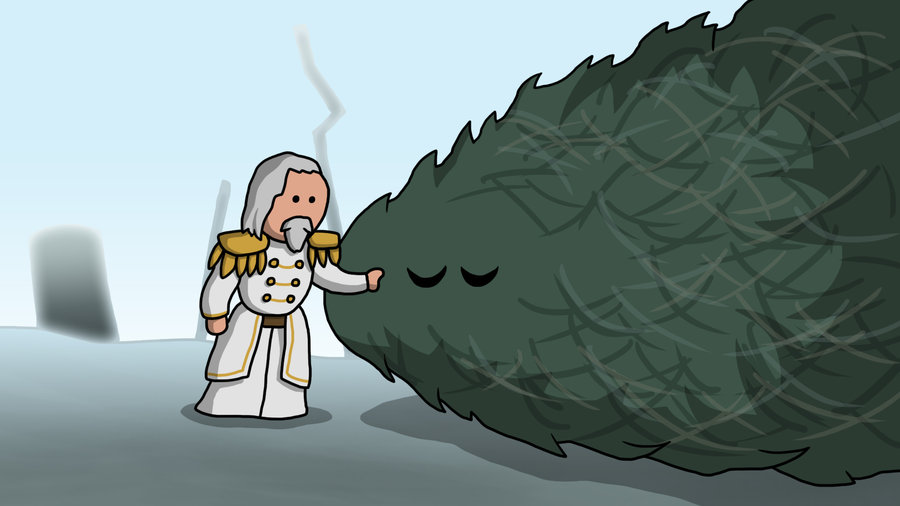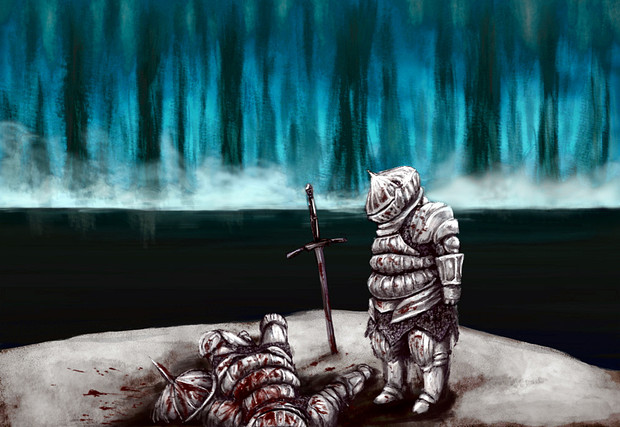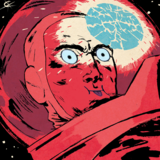Thinkin' about Souls
By nonused 13 Comments
I'm writing this on no sleep and one cup of coffee (I don't normally drink coffee), so I apologize if the writing comes across...off. I just felt like blogging about Souls.

Dark Souls and, by extension, Demon's Souls feel like a mistake; like, they shouldn't exist. They're games that defy (mostly) every conventional teaching of modern game design, but fans of the industry were quick to embrace them. Their aplomb towards obscuring and withholding, at times, crucial information from the player leans heavily into the series leaving a sour taste in my mouth. And, yet, I can't stop thinking about these games. Not Dark Souls 2, though. I've thought enough about that one.
I keep trying to pin down what it is about the Souls that I find so fascinating, and I keep finding dead ends. It's not the general structure of the games, 'cause that can straight-up go to hell. In fact, that very same structure that is applauded by Souls aficionados is then immediately derided by, what I would presume to be, the very same audience in neighboring games. Maybe that's an unfair assumption. But, to me, there's this aura about Souls that shapes it as a product for the "gamer who takes games seriously". That's what makes the series complete disrespect towards a player's time all the more acceptable; it's for the true gamers. But showcase any game utilizing similar mechanics revolving around trial and error and backtracking, and I'd bet the chorus would resound with, "No."
So, it's clearly not the macro design of Souls that I find so fascinating. I'd even be willing to argue that it's not why the average gamer enjoys the game. But, I could easily be wrong. Well, then, maybe it's micro. Maybe it's the moment-to-moment. I will say, the games feel weighty in a way that a lot of others in the industry could learn from. Combat hits hard (for melee, at least) and encourages a tense style of play. But, it's also clunky. The camera gets to close; your avatar gets caught up on some pots. You swear you hit the dodge button, but the iFrame God determined you weren't ready yet. Your lock-on goes haywire and tracks the rabid dog behind you as opposed to the giant goat-man dual-wielding, what might as well be, your tombstones soldered to sticks.
Overall: fun, but has its hiccups. Okay. Maybe not so much the combat, then. But I'd say it helps the games more than it hurts them. How about the level design? At times, ingenious. At times, ingeniously infuriating. Looking at you specifically, Dark Souls. You mean to tell me the key I picked up right before the Bell Gargoyles is meant for some door that I passed, what, an hour ago where I was paying attention to the drake spitting Hell from its teeth and his legion of poisonous rats who enjoy knocking adventurers down into the sweet, sweet void? Why would it not be passed the gargoyles? Better question: why is my progress gated by some dude who had some key? Oh, the only reasonable bonfire in Blighttown is hidden in some shadowy cove away from my main destination? The destination all of these environmental graphics are pointing towards? How novel. Surely the developers never intended for me to scale up a seemingly random stretch of tile to get anywhere in Anor Londo. Oh. Oh.... I would mention the second Sen's bonfire here, but I just did.
However, I will concede (pointing to the "ingenious" previously mentioned), that when everything interlocks, it is immensely satisfying. The world feels more alive, and you feel like you're cheating a system that was never really there (see: video games).
While I can certainly appreciate it, the answer isn't level design; it's too much of a mixed bag. That leaves only (I think; I may be overlooking something else) the lore of these worlds. I already know, but you may not know, dear reader, that this is indubitably my favorite aspect of these games.

In contrast, it is so meticulously crafted and nursed by the developer, that every other facet of these games is left to blush. It's hilarious, too, because it could easily be argued this area of the games didn't need any regard. But FromSoftware did their damnedest to refine something that should have been, historically speaking, aggressively dismissed. Hiding your world within item descriptions? Implied character motivations? Endings without any clear repercussions? Sounds like a train heading straight for "This Reviewer Does Not Think Kindly of the Feature's Narrative" Town. And, I seem to recall, in the case of Demon's Souls, that certainly was the case. But then, fans dug. They uncovered carefully and insanely hidden developments that paved the way for progressive, interactive narrative. I honestly think this might be the best way to tell a game story: nonintrusive, yet begging investigation. Figuring out the games' tales is a game in and of itself. Tales that, by all rights, should have been left to rot.
But, FromSoftware's gamble paid off, on part of what I just realized was a bigger player in this discussion than I had previously realized: the community. It's clear the Souls games were designed with online interaction in mind, in what may be the most redundantly inventive system games have ever had. Considering the environment From was developing in, mad lib note functions became either entirely unhelpful or extremely pointless ("How many notes can we make about boobs, guys?"). It's interesting that notes were their answer for the antiquated systems Souls adopts (I'd assume to mitigate them), as the internet did a much better job. And, I posit, a lot of players needed the internet to progress. Or maybe it was just me; that key bit really confused me.
It makes me wonder: could these games exist two generations ago? Would they work as PS2, PS1 games? Wasn't King's Field a similar deal? Was that not condemned to obscurity? That's not a rhetorical question; I honestly don't know. But I hadn't heard of it, 'til Souls made its way into the industry vernacular. Does the communal aspect add so much as to make them completely different beasts? How many games from the past employed similar narrative techniques, only to fade away into indifference? Are these truly the first?
I don't know. And I don't think I'll ever really know what keeps this series in my head. It's probably just the artistic design or overall somber tone; something two dimensional like that. Could just be how much I appreciate the beautifully crafted stories. Maybe it's all the dissonance regarding the games' praises; maybe it's all those negative aspects that keep me coming back. I don't know. This blog won't have a clean conclusion; I'll keep thinking about Souls, and Souls won't be thinking about me.

